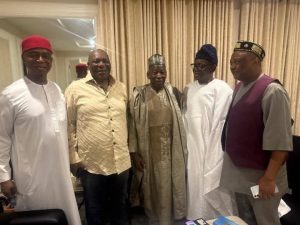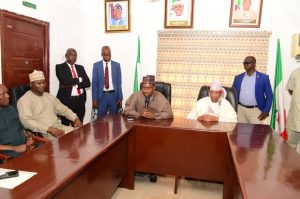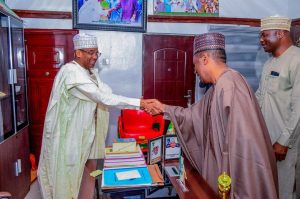News
Just in: Tinubu gives fresh directive on Tax reform Bills
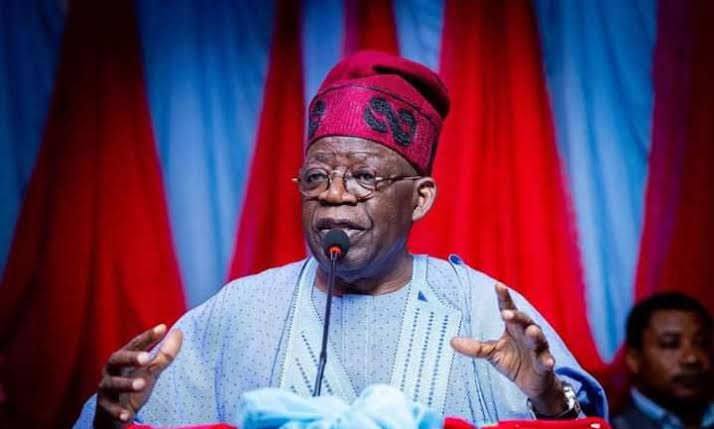
Following the controversy emanating from the Tax Reforms Bills, President Bola Tinubu has directed the Ministry of Justice to work closely with the National Assembly to address the concerns within and outside the legislature.
The Minister of Information and National Orientation, Mohammed Idris, revealed this in a statement he signed Tuesday titled ‘President Tinubu committed to accountability on tax bills, directs Ministry of Justice to work with NASS on concerns.’
Mohammed said, “In line with the established legislative procedure, the Federal Government welcomes meaningful inputs that can address whatever grey areas there may be in the bill.
“In this vein, President Tinubu has already directed the Federal Ministry of Justice and relevant officials who worked on the drafts to work closely with the National Assembly to ensure that all genuine concerns have been addressed before the bills are passed.”
Following approval of the Federal Executive Council in October, President Tinubu transmitted four tax reform bills to the National Assembly for consideration.
The Federal Government says the bills are aimed at overhauling the nation’s tax system.
They include the Nigeria Tax Bill 2024, the Nigeria Tax Administration Bill, the Nigeria Revenue Service (Establishment) Bill, and the Joint Revenue Board (Establishment) Bill.
The proposed legislation seeks to consolidate existing tax laws, establish clearer frameworks for tax administration, and create bodies like the Tax Appeal Tribunal and the Office of the Tax Ombudsman.
However, they have sparked significant controversy.
Critics argue that the reforms could disrupt the balance of fiscal federalism, potentially centralising tax authority and diminishing state revenues.
Notably, at a meeting on October 28, 2024, governors of the 19 Northern States, under the platform of the Northern Governors’ Forum, rejected the new derivation-based model for Value-Added Tax distribution in the tax reform bills.
They argued that the changes might adversely affect their regions’ financial autonomy.
Three days later, the National Economic Council comprising all 36 state governors asked the President to withdraw the Tax Reforms Bill from the National Assembly for more comprehensive consultations.
However, the President said there would be no need to withdraw the tax reforms bill from the National Assembly.
He insisted that, while the legislative process takes its course, inputs and changes can be made without withdrawing the bill from the NASS.
The controversy has permeated the legislative process. Some senators such as the dormer Senate Chief Whip, Ali Ndume, are calling for the withdrawal of the bills to allow for more extensive consultations.
Governor Babagana Zulum of Borno State has also warned that while President Tinubu can deploy his executive powers to pass the tax reform bills, there would be consequences for millions of Nigerians.
Zulum added that the proposed VAT-sharing model will only benefit Lagos and Rivers states.
Nonetheless, the Senate proceeded to pass the bills for a second reading, a move that has been met with harsh criticism.
In its statement on Monday, the Presidency said most reactions from political leaders and commentators “are not grounded in facts, reality, or sufficient knowledge of the bills.”
It said the tax bills will not enrich Lagos or Rivers states at the expense of northern states.
Corroborating the Presidency’s stance, the Information Minister said, “The fiscal reforms will not impoverish any State or region of the country, neither will they lead to the scrapping or weakening of any federal agencies.”
“Similarly, it is important to be aware that there is a lot of misinformation and fake news circulating around the tax bills and the overall reform agenda of the Tinubu Administration.
“I call on all commentators and groups to keep up the spirit of informed engagement, and to strive to be respectful and understanding at all times despite the diversity of opinions. In the spirit of democratic engagement, there should be no room for name-calling, or for the injection of unnecessary ethnic and regional slurs into this important national conversation,” Idris added.
The FG welcomed the nationwide debate on the bills saying “This is the very essence and meaning of democracy.”
It argued that contrary to the popular notions the bills will “bring relief to tens of millions of hardworking Nigerians across the country and empower and position our States and the 774 Local Governments for sustainable growth and development.”
It said the President’s ambitious fiscal reform agenda will devolve more resources to Nigeria’s State and Local Governments, and ultimately to the Nigerian people, in the spirit of harnessing democracy that works for the people.
Idris argued that Nigerians are witnessing the most far-reaching, impactful, and beneficial set of fiscal reforms that Nigeria has seen in decades.
In addition to the four tax bills being debated and deliberated upon, there is also the 2023 Supreme Court ruling on financial autonomy for local governments, which will significantly empower the tier of government that is closest to the Nigerian people.
The FG said these reforms will not only facilitate increased revenues (without imposing additional tax burdens on the people), they will also make it possible for citizens to demand and enjoy greater accountability in the management of public resources at all levels of government.
“President Tinubu and the administration will continue to champion policies that close the loopholes and gaps through which Nigeria’s valuable public resources have been frittered away for decades.
On top of this necessary foundation, the resources being conserved and realised from these reforms will be invested in critical infrastructure (healthcare, education, transportation, digital technology, etc) and in social investments that will benefit all Nigerians and ensure that no one is left behind.
“This is the promise and the reality of the Renewed Hope agenda,” the statement read.
News
Senator Manu donates five operational vehicles to Taraba PDP(Photos)
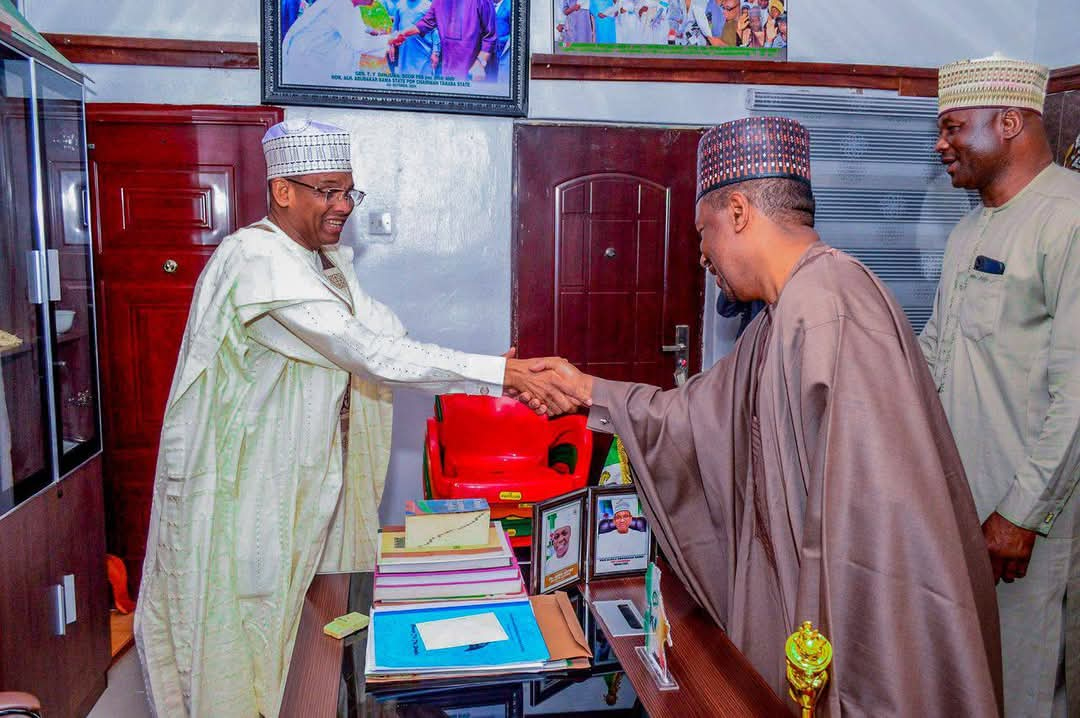
…hails emergence of Bawa as state chairman
The Senator representing Taraba Central Senatorial District Senator Manu Haruna on Sunday donated five operational vehicles to Taraba Peoples Democratic Party, PDP to enhance its operations.
Manu also seized the opportunity to congratulate the state Chairman, Hon Abubakar Bawa when he visited the secretariat in Jalingo last Sunday.
The former State Deputy Governor expressed his congratulations to Chairman Bawa and the state working committee for their election, emphasizing the importance of unity and progress within the party. He commended their commitment to strengthening the People’s Democratic Party (PDP) in Taraba State.
In a generous move to enhance the operational capacity of the party at the grassroots level, Senator Manu donated five vehicles — one for each Local Government Area (LGA) party chapter in Taraba Central.
This donation is intended to facilitate better coordination and outreach efforts within the party.
Senator Manu praised Hon. Abubakar Bawa for his dedicated efforts to elevate the PDP in the state, asserting that Taraba will always remain a stronghold for the party.
In response, State Party Chairman Alhaji Bawa expressed his heartfelt gratitude to Senator Manu for his thoughtful visit and generous donation. He acknowledged the impact of such contributions on the party’s progress and reemphasized the commitment of the PDP to serve the interests of the people in Taraba State.
News
Justice Minister, Fagbemi seeks support for govt’s national law reform initiative
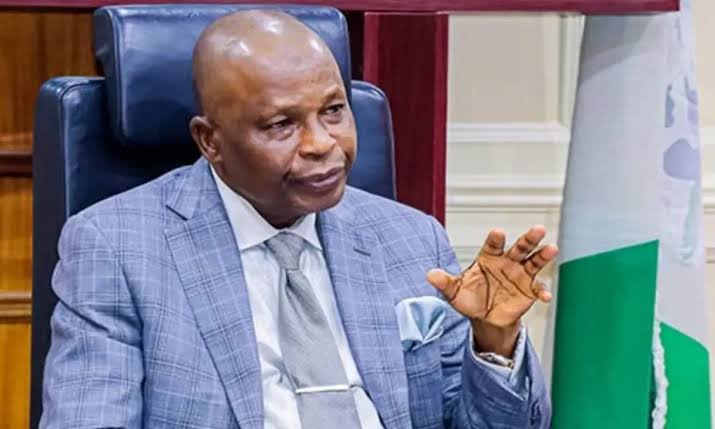
By Francesca Hangeior
The Attorney General of the Federation and Minister of Justice, AGF, Prince Lateef Fagbemi, SAN, has canvassed for greater efforts and commitments to the Federal Government’s aspirations to produce a workable legal framework for the country.
He charged the Committee put in place by the federal government to review, revise and consolidate the Laws of the Federation of Nigeria, LFN, to double the efforts and commitments to deliver on the mandate at the appointed time.
Fagbemi, a Senior Advocate of Nigeria, spoke on Monday in Abuja at the second retreat of the Committee put in place in October last year for the laws of the federation revision and reform.
The AGF while challenging the committee to be up and doing asked the members to remain united in purpose and steadfast in the resolve to produce a legal framework that is worthy of the nation’s aspirations.
He said the second retreat organized by the federal government was a strategic consolidation of the national law reform efforts and to provide an invaluable opportunity to come up with a better workable legal framework for the nation.
“Let me start by expressing gratitude to the Chairman, Co-Chairperson and members of the Committee for their selfless service and sacrifice, to ensure that this project is executed efficiently and effectively.
“The call to be part of this assignment is indeed a sacred that inevitably and positively affects the lives of individuals, government, businesses as well as citizens of this nation.
“The general purpose of law is to regulate human behavior by protecting lives and properties in society. The inauguration of the Committee on the 24th October, 2024 marked a historic milestone in our collective efforts to modernize, consolidate, and harmonize Nigeria’s body of federal statutes.
“The retreat successfully provides a clear framework for the structure and methodology of the revision exercise, oriented the 14 Working Groups tasked with reviewing specific legal subject areas, and fostered collaboration among key institutions and stakeholders on the project.
“Following the initial retreat, I wish to note that the Committee has recorded steady progress in its work.
“The Ministry has taken several measures to ensure that the assignment is delivered efficiently, including:training sessions for secretaries of the working groups to enhance documentation and coordination; technical meetings of the main committee and its various sub-committees; working sessions and deliberations among editors and reviewers; and ongoing technical collation of revised laws by the Secretariat.
“This second retreat is a strategic consolidation of our national law reform efforts and provides an invaluable opportunity to: review progress made since the first phase;
address any technical or structural challenges encountered during the collation process;
– Harmonize the output across working groups; and set the tone for the final stages of this important project.
“The next stage of the law review and consolidation process would include editing and proofreading the reviewed legislation, ahead of the final collation, production and printing of the laws of the federation.
“It is my conviction that these phases will be executed with even greater commitment by the Committee, with the support of stakeholders and development partners.
“I wish to commend the leadership of the LFN Committee, the Secretariat for its diligent coordination and day-to-day management as well as the Working Groups, Editors, and Reviewers, for their intellectual rigour and professionalism.
“Special gratitude to our development partners, particularly RoLAC, for standing firmly behind this national project.
“Let me urge all participants to use this retreat as a platform for robust engagement, peer learning, and practical collaboration.
“We must remain united in purpose and steadfast in our resolve to produce a legal framework that is worthy of our nation’s aspirations.
” I wish to express gratitude for your commitment to duty and I charge you to work in synergy and cooperation, in the overall interest of the nation”, the AGF said.
News
You must refund N300m, Rivers State tells NBA
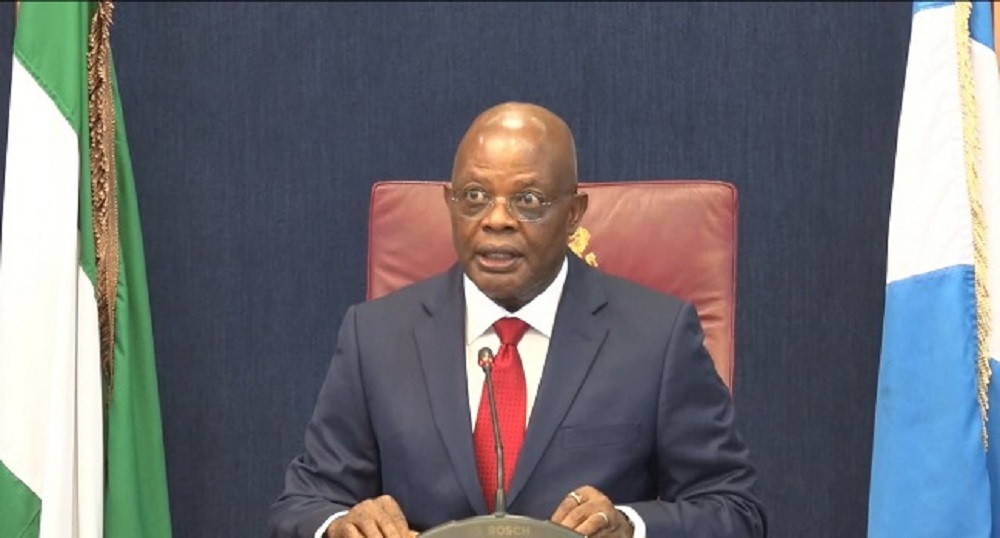
The Rivers State Sole Administrator, Vice Admiral Ibok-Ete Ibas (retd.), has replied to the Nigerian Bar Association regarding the reason for relocating its Annual General Conference from Port Harcourt to Enugu State.
Ibas faulted the reason cited by the NBA, describing it as misleading and uncharitable.
The Sole Administrator stated this in a statement issued in Port Harcourt on Monday by his media aide, Hector Igbikiowubo, and sent to newsmen.
He said while the NBA reserves the right to choose a venue for its conference, the association had yet to address the issue of the refund of the hosting rights paid by the state government for the conference.
The statement partly reads, “While we respect the NBA’s right to choose its conference venues, we find it curious that the association—despite its “principled position”— didn’t address the refund of the N300 million already paid by the Rivers State Government for the hosting rights of the 2025 conference.
“If the NBA truly stands on principle, it should demonstrate the same integrity by promptly returning these funds rather than benefiting from a state it now publicly discredits.”
It added, “The attention of the Rivers State Government has been drawn to the Nigeria Bar Association’s announcement dated 10th April 2025, relocating its 2025 Annual General Conference from Port Harcourt to Enugu.
The statement partly reads, “While we respect the NBA’s right to choose its conference venues, we find it curious that the association—despite its “principled position”— didn’t address the refund of the N300 million already paid by the Rivers State Government for the hosting rights of the 2025 conference.
“If the NBA truly stands on principle, it should demonstrate the same integrity by promptly returning these funds rather than benefiting from a state it now publicly discredits.”
It added, “The attention of the Rivers State Government has been drawn to the Nigeria Bar Association’s announcement dated 10th April 2025, relocating its 2025 Annual General Conference from Port Harcourt to Enugu.
-

 News19 hours ago
News19 hours agoAutonomy: 774 LGs challenge FG, states in court Tuesday
-

 News12 hours ago
News12 hours agoRivers women rally in support of state of emergency
-
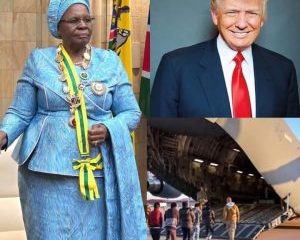
 News12 hours ago
News12 hours agoJust in: Namibia Moves to Deport Over 500 Americans in Bold Visa Policy Shift
-

 News7 hours ago
News7 hours agoYou must refund N300m, Rivers State tells NBA
-
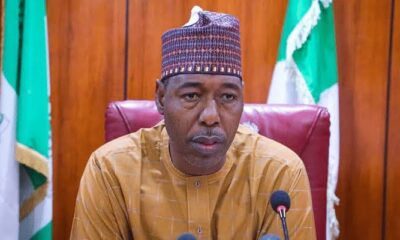
 News18 hours ago
News18 hours agoZulum orders arrest, offers house, scholarship to abused boy in viral video
-

 Politics10 hours ago
Politics10 hours agoBwala accuses Senator Ndume of plans to defect from APC
-
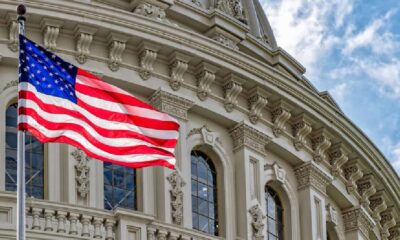
 Foreign7 hours ago
Foreign7 hours agoUS orders 30-day registration for all foreign nationals or face jail, deportation
-
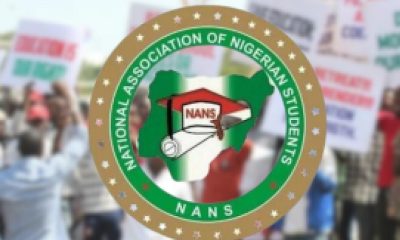
 News20 hours ago
News20 hours agoNANS criticize NASS over proposed bill to fine, jail non voters














